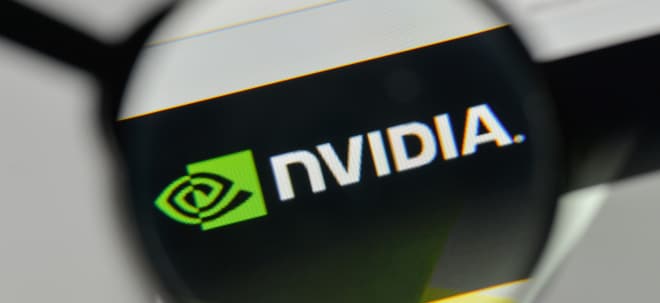Recognized experts in FSA compliance, eligibility, and e-commerce, FSA Store® clarifies common misconceptions to help consumers avoid forfeiting FSA funds to the year-end deadline
DALLAS, Nov. 12, 2025 /PRNewswire/ -- FSA Store®, the first and leading online store dedicated to selling only products and services that can be paid for with tax-free flexible spending account (FSA) funds, addresses common misconceptions and misrepresentations of FSA rules related to the December 31 use-it-or-lose-it deadline and FSA eligibility in the following list of 10 facts all FSA users should know.

FSA funds do expire. All FSAs have an annual spending deadline by which time money in the account must be spent or it is forfeited. HSA funds, on the other hand, do not expire, and all unused funds roll over from year to year.December 31 is the most common FSA deadline. Most FSAs run on a calendar year, but this can vary by employer, so check with your HR team or your FSA administrator to confirm your deadline.Your employer may offer an FSA extension. An employer may offer an FSA deadline extension, such as a partial carryover of unused funds (if this option is provided, up to $660 may be eligible to carryover from 2025 to 2026); a grace period (an extra 2.5 months after the plan year end date – typically March 15 – during which you can spend FSA funds from the previous year on new expenses); and/or a run-out period (a timeframe after your plan year ends – usually 90 days – during which you can still submit claims for reimbursement of expenses your incurred during the prior year). An FSA may have a carryover option or a grace period but not both, and/or a run-out period. Deadline extensions are completely optional and are determined by the employer.Documentation may be required for certain expenses. At deadline time, it's common to see advertisements for FSA-eligible products and services from a wide variety of brands and retailers. However, what these ads fail to mention is that you may need a letter from your doctor (called a Letter of Medical Necessity or LMN) before your FSA administrator will approve the purchase. To avoid potential eligibility delays or rejected claims, use the comprehensive FSA Eligibility List™ at FSA Store® , and if an LMN is indicated, contact your FSA administrator or HR team for next steps. FSA funds can be used for gifts for yourself or your dependents. Give the gift of good health to qualified dependents (including children through the age of 26 who qualify under your FSA). Whether you're purchasing stocking stuffers like acne patches and SPF lip balms or investing in high-tech devices like an Oura Ring, WHOOP Life Wearable Health & Activity Tracker, a Caring Mill™ by Aura heated massage gun, or a Dr. Dennis Gross light therapy mask, FSA funds deliver high-value healthcare support to your family.The December 31 deadline also applies to most Limited Purpose FSAs. Use these funds for vision and dental expenses like annual exams, eye glasses, contacts and more.The IRS does not allow "stockpiling" of items with an FSA. It may be tempting to use remaining funds to fill your medicine cabinet with tampons or bandaids, but purchasing more than you will use of a single item within a given plan year may be considered stockpiling and is not allowed by the IRS.Shop early to make sure your purchase applies to your 2025 plan year. To qualify as a 2025 FSA expense, purchases must be processed and hit your account by end of day on December 31. Unlike some retailers who charge your card when products ship, products bought on FSA Store are processed at the time of purchase to help ensure funds are deducted from your 2025 balance.There's still time to make a plan for spending FSA funds. While the December 31 deadline is coming fast, there's still time to check your balance (call your FSA administrator or check your online benefits portal) and plan to submit expenses for reimbursement or enjoy an end of year healthcare shopping spree. Shop our selection of exclusively eligible products and telehealth services at FSA Store to enjoy flexibility of your tax-free funds with zero guesswork.The tax savings potential outweighs the risk of forfeiture. According to data from VISA, employees forfeited an average of $463 from their FSA funds last year. While we hope to see this number decrease given the thousands of ways consumers can responsibly spend down their FSA dollars, even if you do forfeit, the tax savings typically outweigh the lost funds. For example, if you contributed the maximum amount of $3,300 to your FSA in 2025 and you forfeit the average of $463, your approximate annual tax savings will be $990 (depending on your tax bracket), so it was still worth the election. "Especially at this time of year, there is a lot of misinformation related to the FSA deadline and how these tax-advantaged accounts can be used," said Rachel Rouleau, chief compliance officer for Health-E Commerce®, parent brand to FSA Store®. "It's critical that account holders have reliable information and access to eligible products and telehealth services, and our team at FSA Store® is proud to be that source of truth."
Take these steps to avoid forfeiting FSA funds:
Check your FSA balance. Check with your employer or FSA administrator for this information. You may even have access to your FSA information via an online portal through your FSA administrator.Use account management tools at FSA Store®, including an interactive deadline spending tool, product bundles, and the ability to shop by price to align with remaining funds.Use the searchable FSA Eligibility List™ at FSA Store® to shop more than 2,500 exclusively FSA-eligible products. Our specially trained FSA customer service representatives are available 24/7 via online chat or telephone to answer your deadline questions.To learn more about the FSA deadline and how to spend funds before December 31, visit FSAstore.com.
About Health-E Commerce
Health-E Commerce is the parent brand to FSA Store and HSA Store, online stores that serve the 70+ million consumers enrolled in pre-tax health and wellness accounts. The company also created Caring Mill™, a popular private-label line of health products through which a portion of every purchase is donated to the Children's Health Fund. Since 2010, the Health-E Commerce brands have led the direct-to-consumer e-commerce market for exclusively pre-tax health and wellness benefits. Health-E Commerce plays an essential role in expanding product eligibility for important new categories within the list of eligible medical expenses.
 View original content to download multimedia:https://www.prnewswire.com/news-releases/get-the-facts-10-things-to-know-about-tax-free-flexible-spending-accounts-fsas-and-the-december-31-use-it-or-lose-it-deadline-from-fsa-store-302613039.html
View original content to download multimedia:https://www.prnewswire.com/news-releases/get-the-facts-10-things-to-know-about-tax-free-flexible-spending-accounts-fsas-and-the-december-31-use-it-or-lose-it-deadline-from-fsa-store-302613039.html
SOURCE Health-E Commerce
![]() View original content to download multimedia:https://www.prnewswire.com/news-releases/get-the-facts-10-things-to-know-about-tax-free-flexible-spending-accounts-fsas-and-the-december-31-use-it-or-lose-it-deadline-from-fsa-store-302613039.html
View original content to download multimedia:https://www.prnewswire.com/news-releases/get-the-facts-10-things-to-know-about-tax-free-flexible-spending-accounts-fsas-and-the-december-31-use-it-or-lose-it-deadline-from-fsa-store-302613039.html

